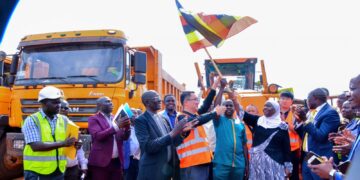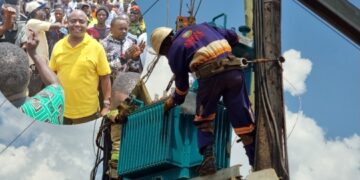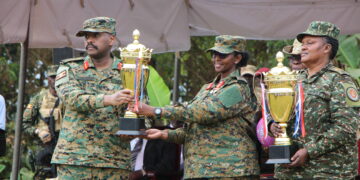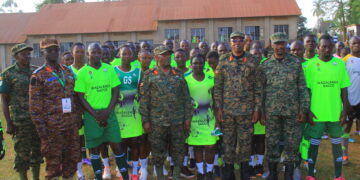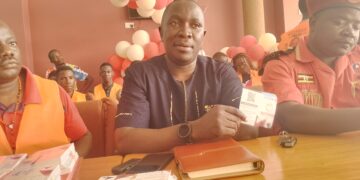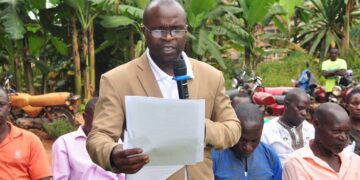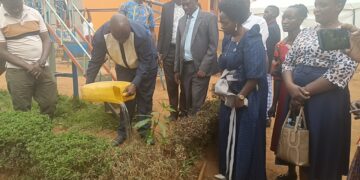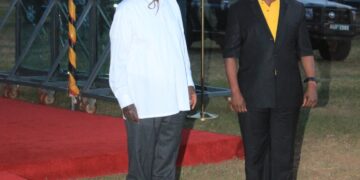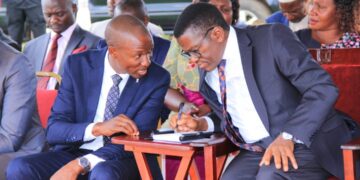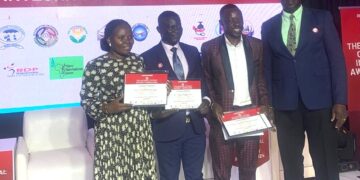Kampala – The Constitutional Court has dismissed a petition by Makindye West Member of Parliament Allan Ssewanyana, who had sought declarations and compensation over what he described as unlawful arrest, prolonged detention, and unfair prosecution in relation to the 2021 Masaka machete killings.
Ssewanyana, alongside the late Muhammad Ssegirinya, the former Kawempe North MP, was accused of murder, attempted murder, terrorism, and aiding terrorism following a wave of machete attacks in Masaka that left more than 20 people dead.
The petition was initially filed jointly but was abated earlier this year after Ssegirinya’s death, leaving Ssewanyana as the sole petitioner.
A panel of five Justices— Irene Mulyagonja, Jesse Byaruhanga Rugyema, John Mike Musisi, Esta Nambayo, and Ketrah Kitariisibwa Katunguka—ruled unanimously on Friday to dismiss the case.
Justice Katunguka said the petition raised no fresh constitutional questions and dealt instead with matters of rights enforcement that had already been resolved in earlier rulings.
At the centre of the petition was Ssewanyana’s claim that the Director of Public Prosecutions (DPP) abused her authority by splitting charges from the same set of facts into separate cases before the High Court in Masaka and the International Crimes Division in Kampala.
His lawyers, Erias Lukwago and Ssekanjako Abubakar, argued this amounted to political persecution and a deliberate attempt to keep him in detention without trial.
The petition also challenged provisions of the Judicature that allow the DPP to withhold witness identities and certain evidence on security grounds.
Ssewanyana insisted this undermined his right to a fair hearing and adequate defence as guaranteed under Article 28 of the Constitution.
He further cited violations such as being detained for over 500 days without trial and being violently re-arrested outside Kigo Prison on September 23, 2021, just after being granted bail.
Masked gunmen allegedly bundled him into a van and whisked him to an undisclosed location before he resurfaced at the Special Investigations Unit in Kireka.
In his prayers, the legislator asked the Court to declare his prosecution unconstitutional, consolidate or terminate the multiple charges, bar the state from duplicating cases, and award him damages for psychological torture.
The Attorney General, represented by Assistant Commissioner Peter Masaba, opposed the petition, saying it raised enforcement issues outside the Constitutional Court’s jurisdiction under Article 137.
The state also argued that disclosure rules at the International Crimes Division struck a lawful balance between fair trial rights and protection of witnesses.
Justice Katunguka, citing previous rulings such as Soon Yeon Kong Kim & Kwang Mao v Attorney General (2007), said the Court could not reopen issues already settled.
The bench also faulted Ssewanyana’s legal team for filing submissions over a month late, warning that such delays could attract cost sanctions in future.
In the end, the Court dismissed the petition for lack of jurisdiction but declined to award costs, noting that Ssewanyana is still facing trial in the substantive cases.
The Masaka killings case remains one of Uganda’s most politically sensitive in recent years.
While Ssewanyana is currently out on bail, his co-accused—Jackson Kanyike, John Mugerwa, Bull Wamala, and Mike Sserwadda—remain on remand at Luzira Prison after repeated failed bail bids.
Speaking after the ruling, Ssewanyana and his lawyer Lukwago expressed disappointment and vowed to challenge the decision in a higher forum.
The ruling comes at a politically turbulent time for the MP, who recently lost the National Unity Platform (NUP) flagbearer ticket for the 2026 elections.

